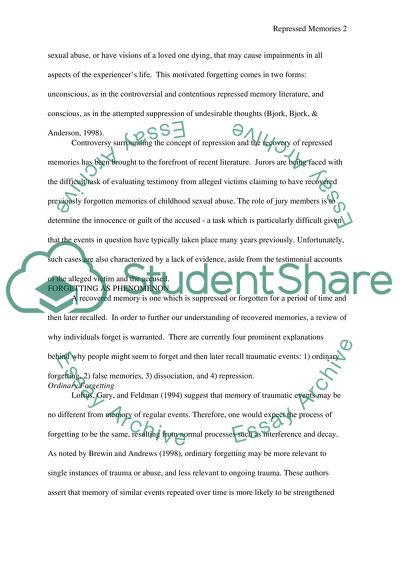Cite this document
(“Repressed Memories Research Paper Example | Topics and Well Written Essays - 2500 words”, n.d.)
Retrieved from https://studentshare.org/miscellaneous/1573115-repressed-memories
Retrieved from https://studentshare.org/miscellaneous/1573115-repressed-memories
(Repressed Memories Research Paper Example | Topics and Well Written Essays - 2500 Words)
https://studentshare.org/miscellaneous/1573115-repressed-memories.
https://studentshare.org/miscellaneous/1573115-repressed-memories.
“Repressed Memories Research Paper Example | Topics and Well Written Essays - 2500 Words”, n.d. https://studentshare.org/miscellaneous/1573115-repressed-memories.


